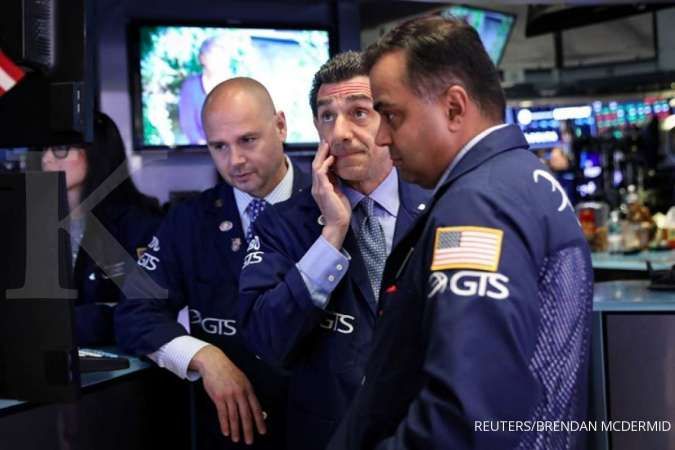GLOBAL MARKET - NEW YORK, July 1 (Reuters) - Global stocks rose and bonds retreated on Monday after the United States and China agreed to restart trade talks at the G20 summit over the weekend, leading investors to bet that a breakthrough between the world's two largest economies would jumpstart global economic growth.
The United States and China agreed on Saturday to resume trade negotiations after U.S. President Donald Trump offered concessions to his Chinese counterpart Xi Jinping when the two met at the sidelines of the Group of 20 summit in Japan.
Those included no new tariffs and an easing of restrictions on Chinese tech company Huawei Technologies Co Ltd. China agreed to make unspecified new purchases of U.S. farm products and return to the negotiating table.
"It played out as well as possible," said Hans Peterson, SEB Investment Management's global head of asset allocation. "It gives us time to digest and get a bit better activity in the global economy."
Broad gains in Europe and Japan pushed MSCI's broadest global index up 0.6%, adding to a rally that has been one of the global stock market's best first halves to a year ever.
The benchmark S&P 500 index briefly surpassed its previous record high of 2,964.15, set on June 21, before giving back some gains.
On Wall Street, the Dow Jones Industrial Average rose 117.47 points, or 0.44%, to 26,717.43, the S&P 500 gained 22.57 points, or 0.77%, to 2,964.33 and the Nasdaq Composite added 84.92 points, or 1.06%, to 8,091.16.
The Dow had been up more than 200 points in earlier trading.
"Any step toward a trade resolution - and it doesn't have to be a lot of progress - just a step, is viewed very positively by markets," said Scott Brown, chief economist at Raymond James in St. Petersburg, Florida. "And investors at this point are trying to focus on the positive in hopes that there will be some trade resolution down the line."
China's CSI300 index of blue-chip stocks jumped 2.6% to their highest since late April and Germany's export-heavy DAX gained 1.5% to its highest since August. The Huawei hiatus and M&A activity drove Europe's tech sector to a one-year peak.
Fed funds futures dropped over five ticks as the market scaled back the probability of a half-point interest rate cut this month to around 15%, from nearer 50% a week ago.
"I think the Fed expectations in the market are very aggressive; possibly a bit too aggressive," SEB's Peterson said.
In currency markets, safe havens like the yen and Swiss franc gave up some recent gains. The dollar rose 0.4% on the yen to 108.26 and 0.7% on the Swiss franc to 0.9830 franc.
The dollar added 0.4% on a basket of major currencies to 96.531. The dollar's gains hurt gold, which fell 1.5% to $1,388 per ounce.
Oil prices rose as much as $1 a barrel before giving up some of their gains after OPEC and its allies looked set to extend supply cuts at least until the end of 2019. Iraq joined top producers Saudi Arabia and Russia in endorsing the policy.
Brent crude futures rose 10 cents, or 0.2%, to $64.64 a barrel. U.S. crude gained 18 cents, or 0.3%, to $58.65.
(Reporting by David Randall; editing by Jonathan Oatis)
/2019/06/29/1779717131p.jpg)













